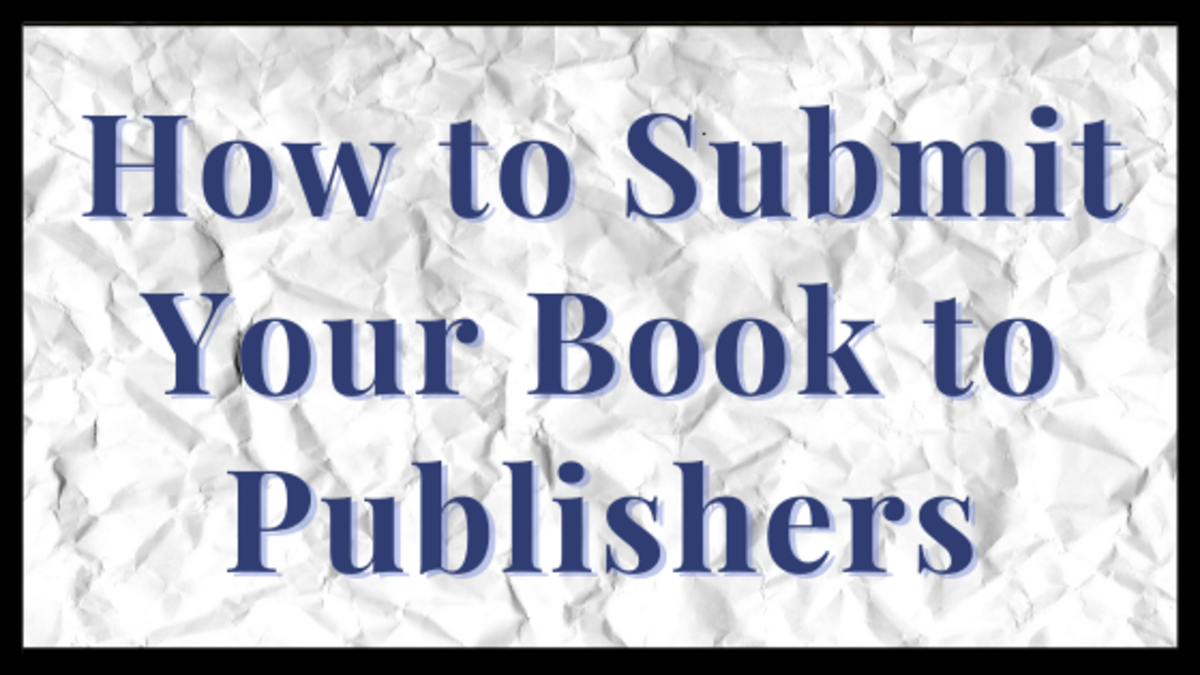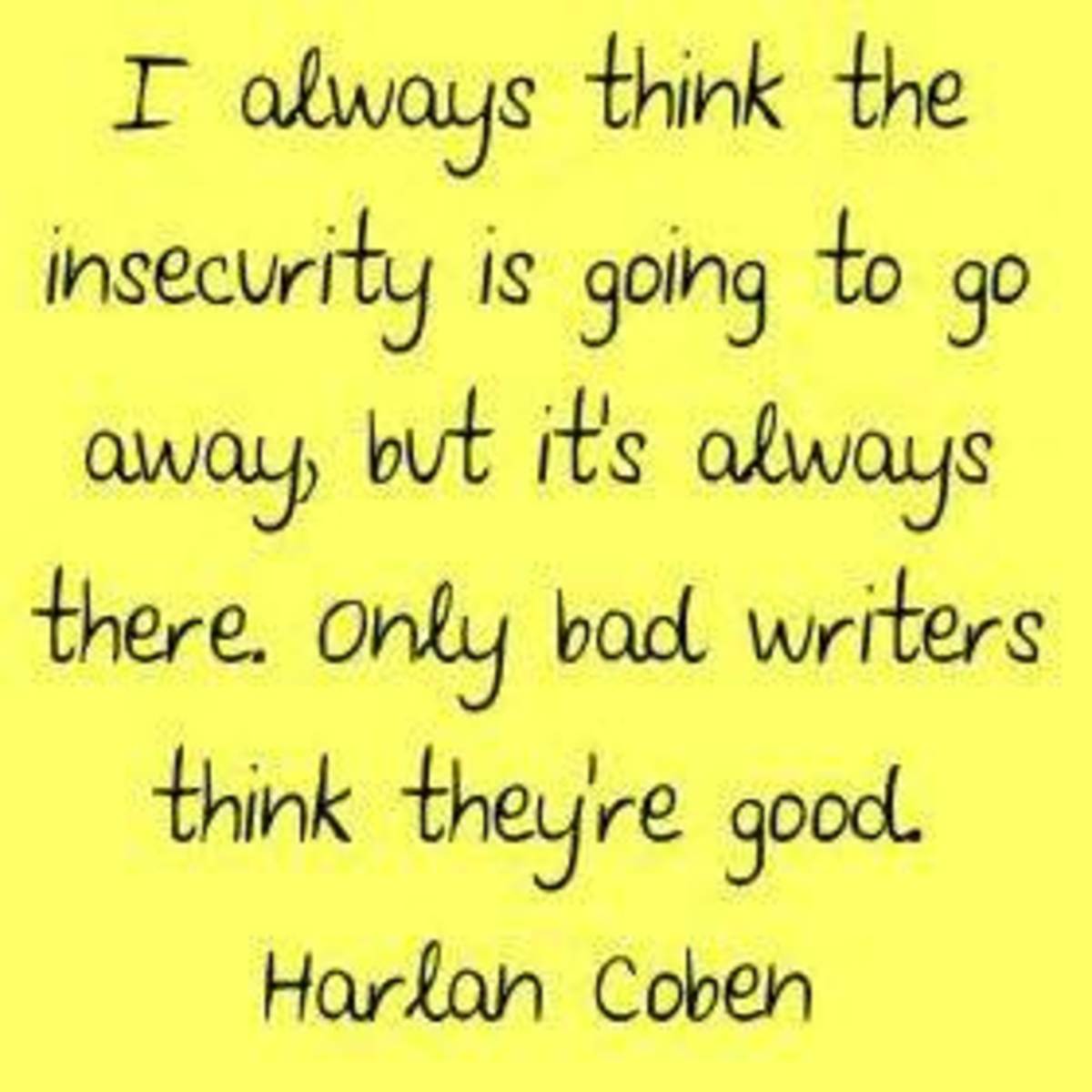- HubPages»
- Books, Literature, and Writing»
- How to Write»
- How to Get Published
Query Letter Essentials
Who Ya Going to Call?
No, this article is not about Ghostbusters, but it is about contacting agents and publishers, so I got a bit silly with the subheading.
I was reading an article the other day about Pulitzer-prize winning writer Gilbert King. “Devil in the Grove” tells the true story of four young black men falsely accused of rape in a Florida citrus town and the unbelievable events that follow their 1949 imprisonments. The Pulitzer committee called it “a richly detailed chronicle of racial injustice.”
I mention this all because “Devil in the Grove” was turned down by thirty publishers.
Thirty!
Thirty professionals received King’s query letter and did not find sufficient reason to publish what has since been called in literary circles a masterpiece.
Go figure!
If you are a writer only interested in publishing ebooks then read no further. If, however, you have visions and dreams of one day finding an agent or a publisher who is interested in your book, then this article just might help you. At the very least it should open your eyes and give you something to think about.
Thirty publisher rejected Mr. King’s manuscript based on this query letter. What his letter poorly written? I doubt that seriously. For whatever reason, that magic something was missing from his query letter the first thirty times it was read, but then when Harper-Collins read his letter that magic somehow appeared.
In other words, writing a query letter and having it noticed is an inexact science.
There are, however, some basic elements to a query letter that should appear in each and every one that you send out.

Logline and Manuscript Stats
A logline is a one sentence summary of your book. It is essential and it better be good. If it is, the agent or publisher will then be willing to read the next sentence which will tell him/her the name of your manuscript, the number of words in it and the genre.
How You Found Them
Where did you hear about the agent or publisher, and don’t tell them that you are simply sending a random letter to all agents/publishers. Be specific and mention you read about them in Writer’s Market, or you read a short blurb about them in Writer’s Digest. Show them that they are more than just a name out of the directory.
Movie Trailer Version
Figure about two paragraphs (maybe three) hitting all the key points of your manuscript. This is not as easy as it may sound, especially since it also needs to be very interesting and appeal to the emotions of the one reading it.

Main Characters and Why They are Cool
This is your chance….your only chance….to sell your book. If the characters are the engine of your book, then you need to show the agent/publisher that you have a V8 under the hood instead of a four-cylinder. Explain why your characters are fascinating, and I do mean fascinating. Why should the agent be interested in your characters?
Show Me the Conflict
If the characters are the engine then conflict is the transmission that takes your story from first gear to second, back to first, up to third and so on. Are you getting tired of this metaphor yet?
What are the main points of conflict in your story? In some literary circles these are called “sparks,” and depending on the length of your novel you might have two, three or four different main conflicts.
Brief Bio
One paragraph, please, explaining who you are in brief bio form. No, the publisher does not care about where you were born or who your parents were; they care about your writing background. If you have won competitions then include it in this section. Obviously, if you have been published before, now is the time to brag about it.
If you have done nothing at all then make that nothing sound interesting.
More help on this topic
- How To Write A Successful Query Letter
How do you get the attention of an agent/publisher? Probably the single most important step is to craft a professional query letter. Follow these suggestions and you just might hook an agent.
Indicate What Else You Have Included
If you have included a synopsis and the first three chapters then make sure you mention that so they are not missed. Many query letters are sent via email these days, and many agents do not accept attachments, so all enclosed materials are added in the email after the query letter. Make sure you mention that if that is the case.
Contact Information
Can you imagine a worse-case scenario than a writer sending a dynamic query letter, one that knocks the socks off of a publisher, and then forgetting to tell the publisher how to get hold of the writer? Include your phone number, email address, mailing address and website if you have one.
Thank You
Remember your manners please! Thank the agent/publisher for their time and consideration. Be sincere. The average publisher receives thousands of query letters each month. It really is a big deal if they choose to read yours.
And if they send you a personal response as opposed to a form response, then thank them for that. A personal response from an agent/publisher is like gold in the bank. It means they were interested enough to take a couple minutes to personalize their response.
Average Length of a Query
There are differing schools of thought about this, but I advise no more than one page for a query letter. The last thing I want to do is bore the publisher with the first communication they receive from me, so one page is sufficient provided it is well-written and covers all of the items mentioned above.
One page….about five paragraphs….and if you have written them well, and included all of the necessary information, there are still no guarantees.
How do you like them apples?
Join me on my writing blog
- Artistry With Words | A topnotch WordPress.com site
Tips, suggestions, contests and much more, all for writers of any genre

And That Is All There Is to It
I am not trying to discourage although I’m sure I have done exactly that to some of you. I apologize for that.
I am, however, trying to paint a realistic picture of the odds that are against you as you attempt to attract a traditional publishing house.
In some perverse way I am encouraged when I read stories like Mr. King’s. He was, in many ways, the quintessential freelance writer before the Pulitzer came his way. He did ghostwriting for years. He wrote articles for obscure magazines for low pay, and his first nonfiction book was met with a resounding yawn by readers near and far.
Not to be discouraged, he spent four years researching and writing “Devil in the Grove.” Four years of his life went into that book and then it was rejected by thirty agencies.
And yet he persevered! He was determined to write the best book he was capable of writing. He said that he gave up on social media after about a week. He gave Twitter about ten minutes of his time. He stopped blogging. All of his efforts went into building a book he could be proud of.
And it paid off!
In a very real sense, your query letter is as important as your book. If you do not write a dynamic letter then no one will ever know just how brilliant your book is….and wouldn’t that be sad?
2014 William D. Holland (aka billybuc)
“Helping writers to spread their wings and fly.”








